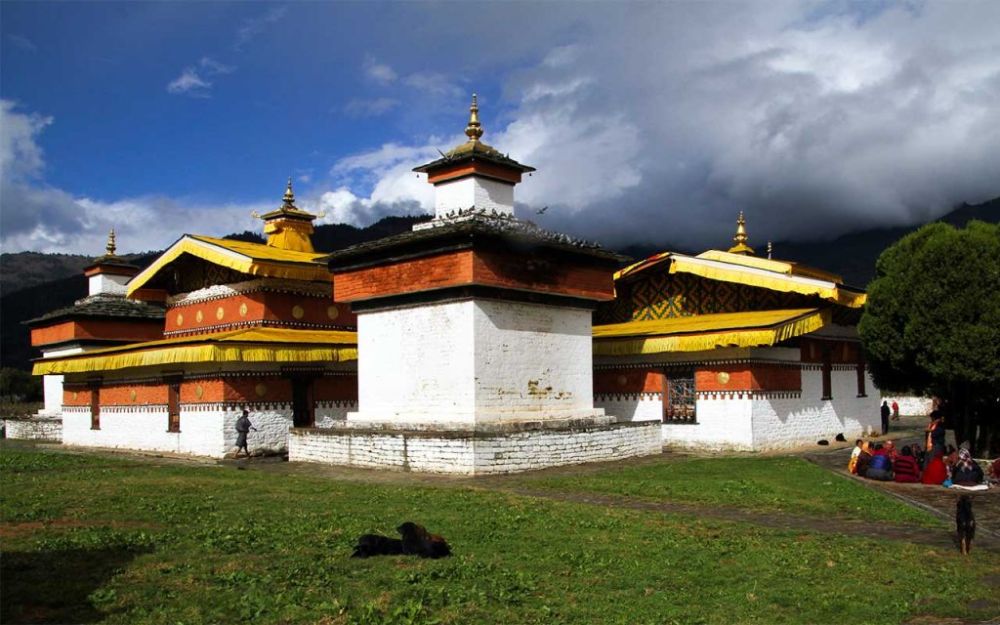

Nestled in the serene valley of Jakar in Bumthang, Bhutan, Jambey Lhakhang stands as a significant monument in Bhutanese history and spirituality. This ancient temple dates back to the 7th century and is believed to be one of the 108 temples built by Tibetan King Songtsen Gampo in a single day, to subdue a demoness residing in the Himalayas.
The temple plays a pivotal role in Bhutanese culture as it is said to possess the power to sanctify and protect the country from harm. Its historical roots attract numerous pilgrims and tourists, contributing to the temple's status as a key travel destination in Bhutan.
Tourism in Bhutan, including at Jambey Lhakhang, really began to emerge in the 1970s when the Bhutanese government cautiously opened the doors to foreign visitors. Initially, tourism was limited to a small number of visitors given the kingdom's emphasis on preserving its cultural integrity and environmental conservation, under the policy of “High Value, Low Impact” tourism.
In the context of Jambey Lhakhang, the temple gained international attention due to the famous festival known as Jambey Lhakhang Drup, which showcases mask dances and rituals performed by monks. This has become a significant draw for tourists, who travel from all over the world to witness this unique cultural event.
The latest trends in tourism at Jambey Lhakhang echo the wider patterns seen across Bhutan. These include sustainable travel, wherein visitors are becoming more mindful of their environmental impact and seek experiences that promote conservation and local culture.
Additionally, there has been an increase in demand for authentic cultural experiences. Tourists visiting Jambey Lhakhang are looking for more than just sightseeing; they are eager to understand the spiritual and historical context, often seeking guided tours that offer in-depth knowledge of the site's significance and lineage.
With the global situation continually evolving, another trend is the rise of wellness and spiritual tourism. Jambey Lhakhang serves as a tranquil haven for those seeking to immerse themselves in the meditative and restorative practices linked closely with Bhutan's Buddhist traditions.
For those planning to visit, it is important to respect the local customs and traditions. Due to Bhutan's tourism regulation policies, independent travel is not generally allowed, and visitors must book their trips through authorized tour operators. The cost of trips includes a daily fee that covers accommodation, food, transportation, and a guide. This system ensures that tourism benefits the economy without overwhelming local infrastructure and environment.